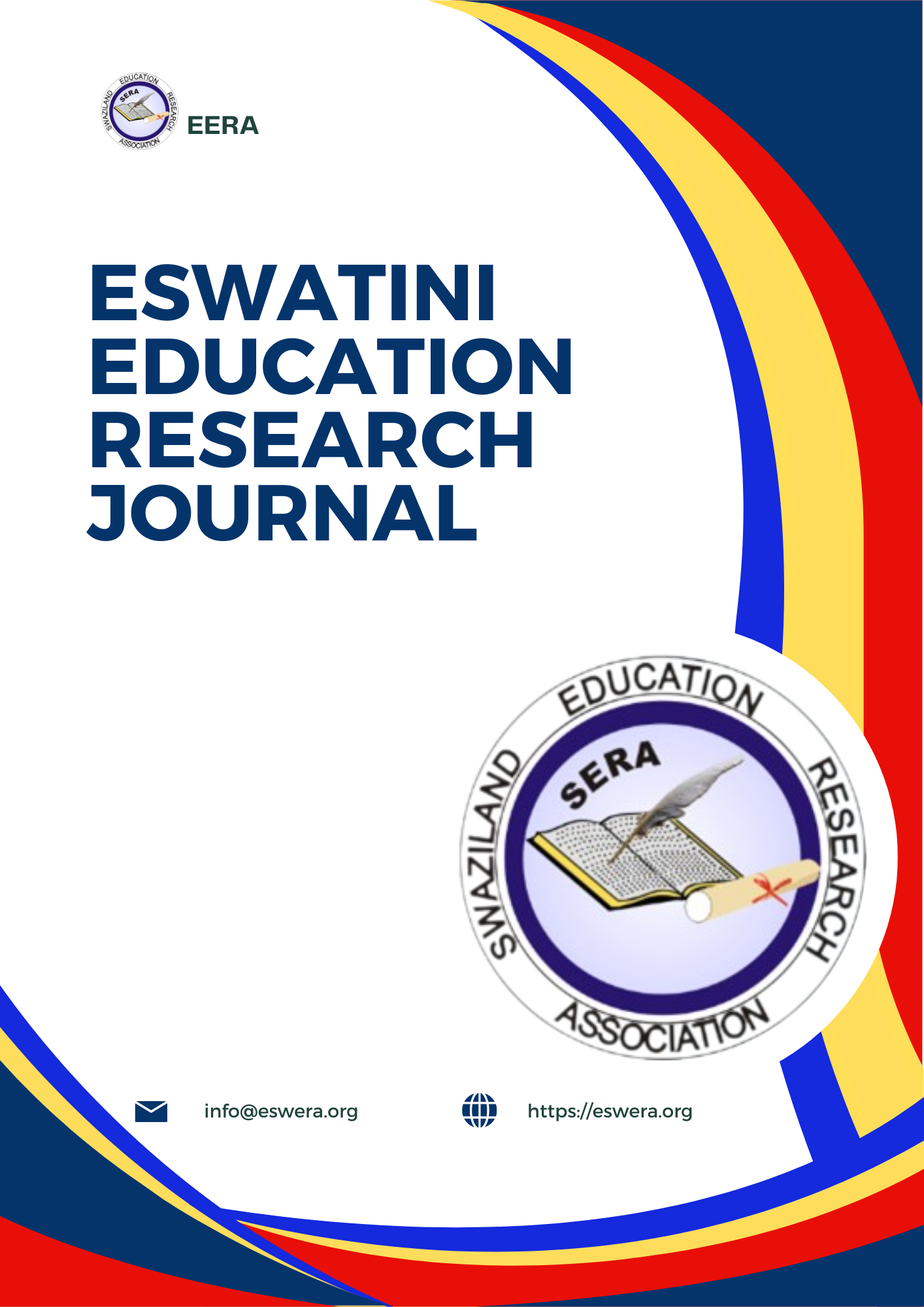Historical Development of Eswatini Educational Research Association
Keywords:
Educational research, Capacity building, Historical development, Thematic analysis, Research associationAbstract
In an effort to promote educational research and professional growth among educators in Eswatini, the Swaziland Education Research Association (SERA) has undertaken various initiatives aimed at enhancing research capacity and academic engagement. Therefore, this study sought to explore the activities, challenges, and future prospects of SERA, with a view to strengthening its operational and strategic effectiveness. The study adopted a qualitative approach using a case study research design. The target population comprised members; and executive leaders (past and present) of the association. Data were collected through semi-structured interviews and document analysis. Trustworthiness of the findings was ensured through credibility, dependability, confirmability, and transferability measures. Ethical considerations such as informed consent, confidentiality, and voluntary participation were also ensured. Thematic analysis was employed to analyze the data. Findings revealed that SERA has made notable strides through workshops, seminars, mentoring, and participation in regional conferences to foster a research culture amongst her members. However, the association faces challenges including low membership, financial constraints, limited leadership engagement, and irregular participation by members. Based on these findings, the study concluded that while SERA is playing a crucial role in advancing educational research, its sustainability depends on structural reforms, increased visibility, and expanded membership. It is therefore recommended that SERA strengthen its governance, establish regional branches, enhance fundraising, and institutionalize member engagement activities for long-term growth and impact.
Downloads
Published
Issue
Section
License
Copyright (c) 2025 Alfred Tsikati

This work is licensed under a Creative Commons Attribution-NonCommercial-ShareAlike 4.0 International License.
The Creative Commons Attribution-NonCommercial-ShareAlike 4.0 International (CC BY-NC-SA 4.0) license terms are as follows:
License Overview: This license allows you to share and adapt the material for non-commercial purposes only, as long as you give credit to the original author and license your new creations under the identical terms.
Key Terms:
Attribution: You must give credit to the original author, provide a link to the licence, and indicate if changes were made.
NonCommercial: You may not use the material for commercial purposes.
ShareAlike: If you remix, transform, or build upon the material, you must distribute your contributions under the same licence as the original.
Permissions:
- Reproduce and share the licensed material in whole or in part for non-commercial purposes.
- Produce, reproduce, and share adapted material for non-commercial purposes only.
- Exceptions and Limitations: Where exceptions and limitations apply to your use, this licence does not apply, and you do not need to comply with its terms and conditions.
Term: The term of this licence is specified in Section 6(a) of the licence agreement.


